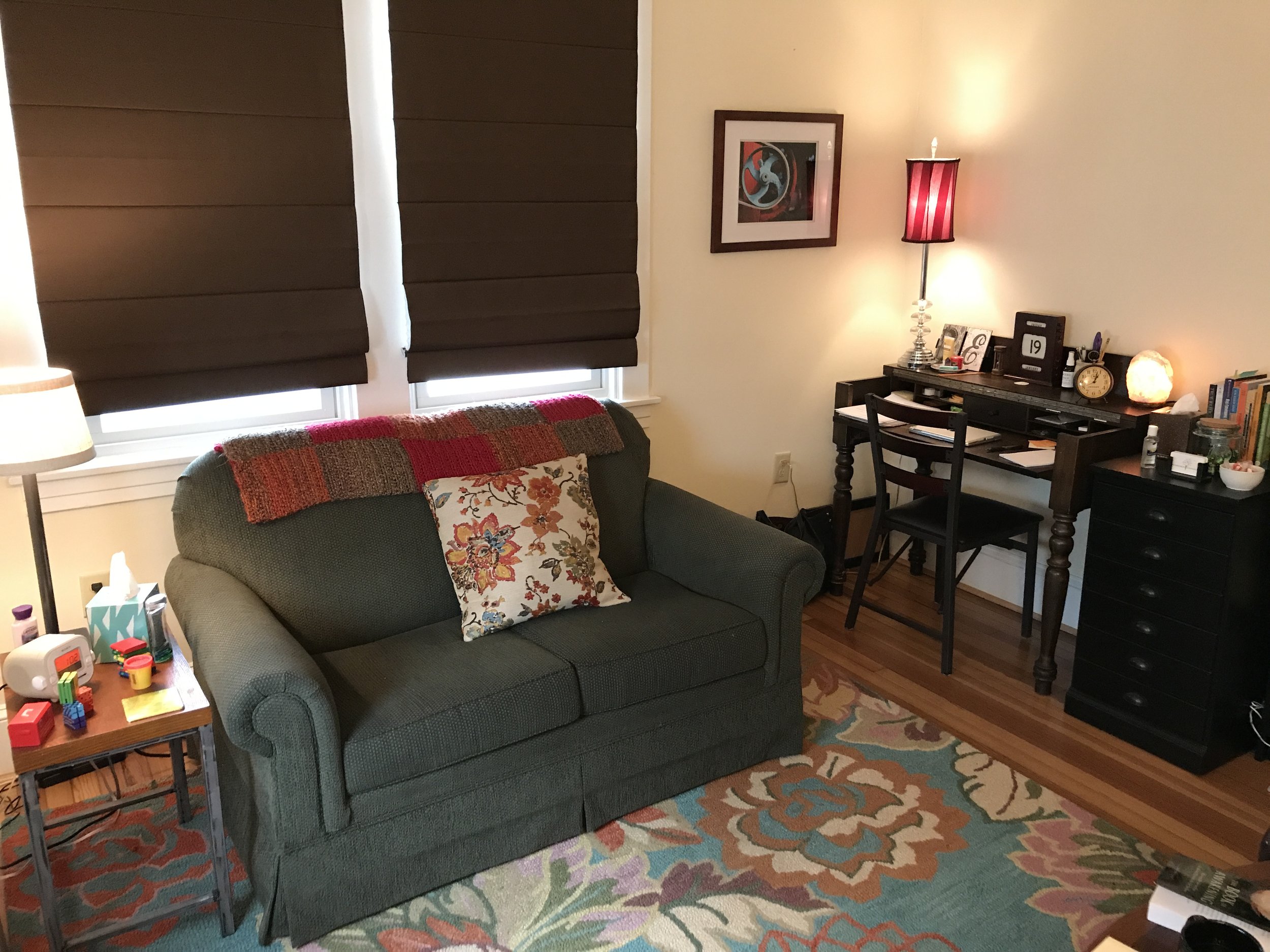Do you journal? Journaling is the practice of writing down whatever is in your head. You can journal daily, weekly, or whenever you feel the urge. A journal can be a place to offload and explore your worries and stress. A place to navigate your inner landscape, a place to record your daily activities, your artwork, special events…You can make your journaling practice as unique as you are. I often recommend the practice to my clients as a way to relieve stress, but some have told me that it can be hard to know what to write. It doesn’t have to be that way.
My own journaling journey
I’ve had an off-and-on relationship with journaling. At times in my life I journaled every day; other times it was more sporadic or not at all. Recently, I came across a bunch of my old journals in a box in my basement. Some of them date back to middle school! That was more than 40 years ago.
There’s something comforting about knowing that my experiences are logged into notebooks that I can go back to anytime. And research shows that journaling improves our mental and physical well-being and our cognitive abilities.
I’ve come back to my journal this year. I was doing it occasionally, and when the pandemic struck, I took up nightly journaling to process my stress and anxieties before going to bed. I’ve enjoyed coming back to the daily ritual, and it calms my mind before sleep during these unsettling times.
Journaling in the digital age
These days you can find apps and online platforms that make journaling easier than ever.
A few weeks ago, the founder of the online journaling platform Upfinch contacted me. They were interested in collaborating, and we set up a phone call to talk about the possibilities. They shared their mission with me, and I was impressed:
If we don’t take time to consciously reflect on our lives, it will never occur. Instead of floating to the next temporary island of comfort, we should be clearly defining what we want and how to get there.
Their journaling prompts get you thinking about yourself and your goals, and they offer prompts to increase positive mental health. Within each category, their templates give you the space to describe your thoughts, stresses and worries. The prompts at Upfinch help you explore and gain a better understanding of yourself. They then take it a step further and prompt you to explore the ideas that can help you move forward.
The founders of Upfinch asked me to collaborate on the templates for anxious feelings and thoughts, and I’m honored to have my suggestions included on their platform!
I’m excited about this collaboration and happy to share that Upfinch is sponsoring the Woman Worriers podcast for the month of January. When you subscribe to the Upfinch platform, the first month is free, and they’re offering Woman Worriers podcast listeners and newsletter subscribers a 15-percent discount off their monthly subscription when you enter the coupon code “WORRIERS” at check-out!
>> You can find the guides here.
>> And sign up for your 15% discount here.
The journals are private and never accessed by humans or software.
Give journaling a try!
People have shared with me that not knowing what to journal about stops them from starting. What stops you from journaling? Maybe 2021 is the year to get started or try a new way to do it.
Through journaling, let’s enter the New Year with new insights and more positive intentions!
I want to Find Similar Articles and podcast episodes
Elizabeth Cush, LCPC is a therapist, blogger, creator and host of the Woman Worriers podcast, and the owner of Progression Counseling in Annapolis, Md and she’s been featured in these major publications. Elizabeth helps busy, overwhelmed men and women manage their anxiety and stress so they can live their lives with more ease, contentment and purpose. If you'd like to know more about how individual, online and group therapy can help ease anxiety contact me!





























